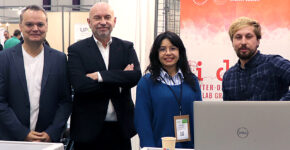
Is success a universal concept?

Women artists

The Lost King

Bold!

Self-defense workshop

International Day of Women and Girls in Science

AdNatura, a success story made in UM
Published on: January 17 , 2024
For this new edition, the national trade show for professionals in ecology and...

The University of Montpellier adopts its master plan for ecological transition (SDTE)
Published on: January 15 , 2024
In light of the current challenges facing our society, the University of Montpellier has decided...

Ecological transition: UM is committed to biodiversity!
Published on: December 20 , 2023
As part of its commitment to ecological transition, UM is launching a set of...

Master plan for ecological transition: "We all have a part to play"
Published on: November 30 , 2023
On November 20, the University of Montpellier voted on its plan during a board meeting...

A week against discrimination
Published on: November 16 , 2023
From November 13 to 17, a week of action against LGBT+ phobias took place in...

Gender equality plan: “A genuine culture of equality is taking shape”
Published on: September 4 , 2023
The University of Montpellier's new gender equality plan was voted on at...

World Water Day: UM contributes to accelerating change
Published on: March 17 , 2023
Every year since March 22, 1993, World Water Day has raised awareness of the importance...


Blurred
